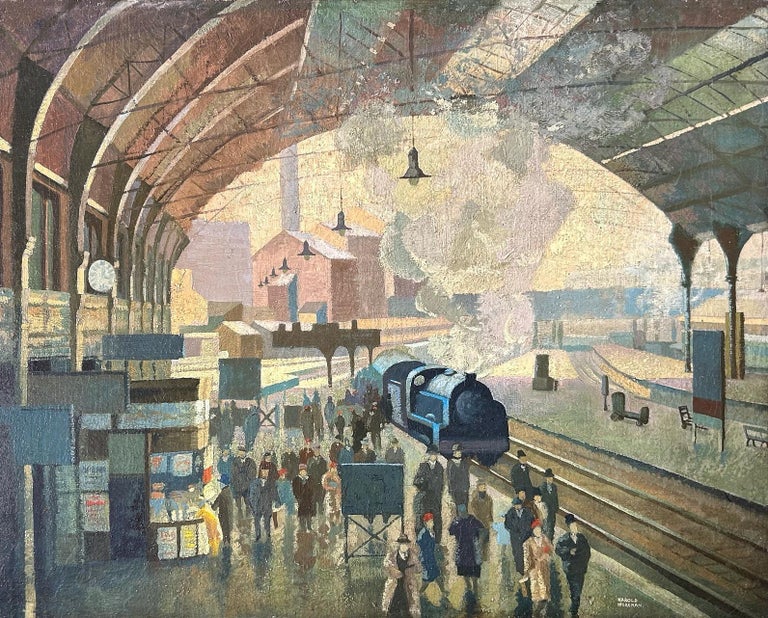British Railways
by Sean Bw Parker (April 2025)

Trains are the best place to see the actual diversity of the UK. Middle-aged professionals, students, tourists, day-tripping precariats, the elderly, hen parties and the societally marginalised roll along the tracks of the UK, where the rail industry started some 200-odd years ago.
Even a stopped clock tells the time twice a day, and in his otherwise wrong-headed Net Zero push, Keir Starmer has pledged to get British Railways off the ground during his Reign of Terror. While most responsible science has by now exposed man-made climate change as a political grift, the UK persists in Miliband’s obsessive crusade, while the rest of the world drops it like the luxury belief it always was.
No problem with electric vehicles: they’re cleaner, quieter, and generally safer (unless they explode). But as President Trump says, there’s no need to mandate them at the exclusion of petrol cars—Make Choice Great Again. But driving is expensive and increasingly joyless, thus shunting people train-wards. So while the privacy of one’s own metal/leather space is an extension of the comforts of home, train travel has all the colour and vibe of being around ‘the people.’ Buses also exist of course, but their population seems to be increasingly marginalised, desperate and elderly, and their drivers very harassed-looking.
There is something in the rhythm and roll of a train that is unique, and if the technology gets too smooth, this is lost. Sitting on reasonably comfortable seats in a long metal tube, surrounded by invisible machinery—the accumulated power is hypnotic, and England rolls by beautifully, whatever state it’s in. It’s beautiful because it passes as if in a film, a place you are observing and passing through: its problems are not yours in that moment.
Postmodern leftist states ride two horses in wanting people to collaborate and be together in harmonious collective toil, while pushing them apart in its own interests via the navel-gazing obsessions of identity politics. Individuated people are easier to control, and British politeness—i.e. not prying—means that opinions are relatively easy to keep siloed. This is harder to do when people get together and talk in honest, frank fashion. Thus isolating, sometimes aggressive car culture supports one side of this state prerogative, while the tolerant togetherness’ of train travel is a more collaborative vibe.
Have you ever been on a long train journey where you feel a little melancholy at the destination, when you realise the few hours you’ve spent in relative silence with this random groups of strangers is moving on into other plans, other lives? This is the calm of transient lives, dovetailing briefly and moving on, and part of the whirring drift of modern life.
While we’re on the subject of calm, the social code that exists elsewhere should exist on trains: no music played without headphones, no eating of full meals, no intentional binge drinking, no overtly loud conversations. Multiculturalism can put a strain on this unspoken, indigenous social code, as an Indian businessperson may think nothing of having a full volume conversation on their phone, or a Jamaican family might feel in perfectly acceptable in a liberal democracy to allow all their children to eat in whatever mobile fashion they like. People from east Asia—mainly Japan, China, Korea etc. —have similar habits to Brits, politeness within the possibilities of liberal democracy, but multiculturalism insists that any social discomfort is the problem of the person being discomforted.
It’s not that any culture is ‘better’ than another, as such value judgments are subjective, but some cultures do rub along easier with each other than others—and it’s rarely got anything to do with language. Diversity has become a politicised word, when in reality it means different kinds of people—eight to eighty, criminal class to fallen aristocracy via corporate suits, Taiwanese students and everyone between. Long live the actual diversity, equality and inclusion of the (British) railways.
Table of Contents
Sean Bw Parker (MA) is an artist, writer and contributing editor to Empowering The Innocent, a justice reform organisation affiliated with the University of Bristol Law School.